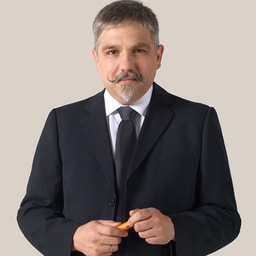Scrum Master and Agile Coach in comparison
Two roles with parallels and differences
We have successfully left the COVID pandemic behind us. At 9 o’clock in the morning, we look into the coffee kitchen of a large company and meet Agile Coach (AC) and Scrum Master (SM). And our colleagues also meet again – from time to time – in the office to develop ideas together.
“Congratulations on passing your certification as a Scrum Master,” AC says as SM enters the coffee kitchen. “Do you want a coffee too?”
“Thanks, AC. Coffee is always good,” SM replies with a mischievous smile.
“You asked me for a quick chat yesterday, what’s it about?”, AC wants to know.
“Well, you’ve been around as an Agile Coach for many years. During my Scrum Master training I had a few things running through my head that I just wanted to discuss with an experienced Agile Coach.”
AC takes the coffee mugs from the coffee machine and places them on the bar table. “Well, go ahead. Only those who ask get answers,” AC explains and SM continues, “I’m not quite sure what the difference is between Scrum Master and Agile Coach. Can you explain it to me in more detail?”
Scrum Master is defined, Agile Coach is not
AC laughs: “Wow, how much time did you bring? I’ll probably need a bit more than just five minutes for that.It’s not always that easy to draw the line, but I’ll give it a try.”
AC takes a deep sip from the coffee mug and continues, “The Scrum guideline pretty much defines the role of the Scrum Master: ‘TThe Scrum Master is accountable for establishing Scrum as defined in the Scrum Guide. They do this by helping everyone understand Scrum theory and practice, both within the Scrum Team and the organisation.’¹ So we have a clear definition for this role. It becomes more difficult when we want to know what an Agile Coach is. There is no guide or comparable definition as in the Scrum Guide.
If you read through the definition in the Scrum Guide, it is quite reasonable to ask what the difference is between an Agile Coach and a Scrum Master. Both roles do something similar. They help organisations to understand what agility is and how it can be brought to life in everyday organisational life. So the difference must be based elsewhere.”
SM nods in agreement, “I’ve stumbled across that too. Okay. So there is no clear definition of what an Agile Coach is.”
“Exactly.” confirms AC.
Experience and focus
“Is an Agile Coach perhaps simply a very experienced Scrum Master?” prods SM.
“Good question,” AC notes appreciatively. “In fact, many Agile Coaches started their careers as Scrum Masters or – if they come from the Kanban background – as Flow Masters. This is not by chance. Let’s take a closer look at what the Scrum Guide says, maybe we’ll get somewhere. It states that the Scrum Master has the focus on the framework Scrum. That is obvious. However, Scrum is only one methodological framework of over 40 recognised agile approaches. From this one could deduce that an Agile Coach has a broader knowledge of methods and should also be correspondingly broader. In other words, the role of Agile Coach implies that the role holder has a very good command of more than just one agile framework. However, this also applies to many Scrum Masters, who should have a broad portfolio of methods in order to do justice to their role.”
“I heard from one of the other course participants that they call their Agile Coaches Senior Scrum Masters. That means then that they are very experienced professionals with a focus on the Scrum framework. What do you think of that,” SM wants to know.
“Makes sense. Most Scrum Masters are specialised in the Scrum Framework. That’s how they emphasise their specialisation. Personally, I think that an Agile Coach should not specialise in a single framework, but should be able to draw on different approaches in depth. As I said, that is my personal expectation of someone who calls himself an Agile Coach.”
Different altitudes of Scrum Masters and Agile Coaches
“Looking around, you could also say that Scrum Masters focus on a Scrum team and its environment, while Agile Coaches primarily coach the management in matters of agility,” says SM.
AC adds: “Yes, you could say that. Unlike the role of Scrum Master, the focus of the Agile Coaches role is actually not on a single agile team that an agile coach looks after in the sense of the role of a team facilitator. The focus is usually
- on a larger organisational unit,
- coaching the decision-makers and the team facilitators of the change process,
- and supporting the implementation of agile methodological approaches.
In other words, they are usually flying at a higher altitude. Scrum Masters also act within the organisation, but usually from the perspective of the Scrum team and the Scrum framework. This does not mean that Agile Coaches do not work with teams. They also support teams. For example, they often coach Scrum Masters and Product Owners, but also developers on demand with specific or special questions or accompany the respective role owners in the development process. I need another cup of coffee – do you?”
SM denies and laughs: “No, thanks. Sometimes I think you have coffee in your veins. How many cups of coffee did you have already today?”
AC has to laugh. “Yes, you’re right, my coffee consumption is pretty heavy.”
Skills and knowledge
“If I have understood you correctly, someone who wants to work as an Agile Coach must have quite a lot of experience and also a very broad knowledge of methods far beyond the pure management framework,” SM states.
“Exactly. Agile Coaches are characterised by
- having a broad methodological and experiential knowledge of organisational structures and processes.
- They know the ‘secrets’ of organisational development as well as team development.
- They help the key decision-makers in the organisation to set the appropriate course for their agile teams,
- are available to the team facilitators as experienced mentors and accompany their development path.
- They have a wealth of experience in organisational development and change processes, as well as the relevant expertise in implementing various agile approaches in organisations.
- And they are able to classify contexts in the organisation as a whole.”
Summary
“Let me summarise briefly. I hope I have kept and reproduced everything correctly,” SM continues.
“The role of the Scrum Master is defined in the Scrum Guide. There is nothing comparable for the Agile Coach. There is significant overlap between the roles. Agile Coaches, like Scrum Masters, work in the organisation and help to bring agility to life in the organisation. The role of Scrum Master, however, has its focus primarily on a Scrum Team and the Scrum Framework, while the role of Agile Coach is aimed more at the organisation as a whole. Also, the role holder should not only be familiar with Scrum, but also with other methodological approaches. I suppose also to be able to help the organisation, which fits better to the respective situation?”
AC nods appreciatively and adds: “Exactly. There is no management framework that fits and applies equally to everything. Also, every organisation has to find the right balance between agility and stability. Ambidexterity is central to organisational success. There are clear intersections between the two roles, but the context and focus varies. As I said, there is no real definition for the Agile Coach role. This does not make it easy to separate the two roles. You could also say that an Agile Coach is a very experienced colleague who knows different frameworks well and helps enable agility in the overall organisation. Has that helped you?”
“For now it has,” SM laughs. “I’ll be asking you a lot more questions over the next few months.”
AC also has to laugh. “Go ahead – that’s my job.”
Notes:
Thomas Michl has published other articles in the t2informatik Blog including:

Thomas Michl
Thomas Michl holds a degree in public administration and an MBA. He worked in the public sector for ten years before joining borisgloger consulting GmbH in 2018 and then Exxeta AG. Today, the passionate agilist works for FourEnergy GmbH as a Senior Business Consultant.
Thomas Michl is one of the founding members of the Agile Administration Forum and a board member of the supporting organisation. The Agile Administration Forum is run on a voluntary basis and has set itself the goal of bringing the idea of the Agile Manifesto to public administration by providing a platform for dialogue and peer-to-peer advice.



